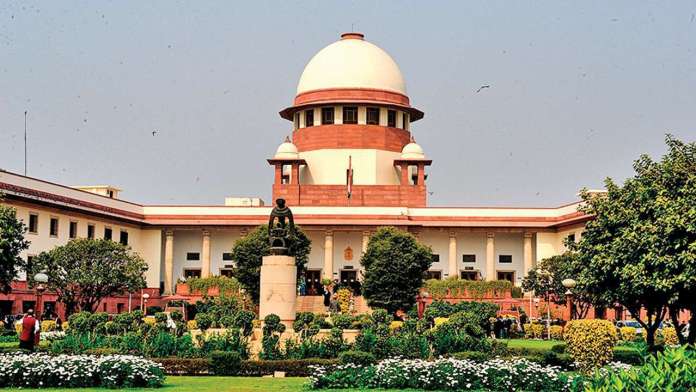Shreya Gupta
On April 3, 2025, the Supreme Court in a recent ruling involving the Public Premises (Eviction of Unauthorised Occupants) Act, 1971, the Supreme Court extended the limitation period for raising a demand by applying Section 18 of the Limitation Act. The judgment was delivered by a bench comprising Justices Vikram Nath and PB Varale.
The case involved the New Mangalore Port Trust (NMPT), which had allotted land to the respondents in 2003. The allotment was subject to payment of a license fee. This fee was to be revised every five years. In 2010, NMPT revised the license fee with retrospective effect from 2007. This led to a dispute between the parties regarding the validity of the retrospective revision.
The licensees challenged the 2010 notification, but the Single Judge of the High Court upheld its retrospective applicability in 2013. Dissatisfied, the licensees filed intra-court appeals before a Division Bench, which remained pending. During this period, NMPT issued demand notices for the differential fee, which the licensees objected to, citing the pending appeal and requesting NMPT not to enforce the demand until the appeal was resolved. Nevertheless, as no interim relief was granted, NMPT proceeded to issue a notice under Section 7(1) of the Public Premises Act, granting one month to pay the amount, failing which recovery would be affected as land revenue. The licensees filed a miscellaneous appeal, where the District Court set aside the demand, holding that the proceedings under Section 7(1) were barred by limitation. The High Court upheld this decision, prompting NMPT to approach the Supreme Court.
The Supreme Court set aside the High Court’s order, stating that the High Court should have awaited the outcome of the intra-court appeals, as the decision therein would have a direct bearing on the writ petition. It emphasized that once the Single Judge upheld the validity of the 2010 notification and dismissed the licensees’ challenge, the pending intra-court appeals should have been resolved first. The Court further noted that the licensees had resisted the demand only on the basis of the pending appeals and had no other valid objection. It held that the respondents should not benefit from a technical limitation objection when they had, in fact, acknowledged liability by not denying the revised tariff, but merely opposing its retrospective applicability.
Refuting the respondents’ contention that they had denied liability, the Court clarified that their challenge was only to the retrospective enforcement and not to the revised rate itself. Thus, there was no actual denial of liability, or the amount demanded. as the 2010 notification remained binding until set aside, the licensees were obligated to comply. Regarding limitation, the Supreme Court disagreed with the District Court and High Court’s view that the three-year limitation expired on 11.05.2015, rendering the notice dated 12.08.2015 time barred.
Applying Section 18 of the Limitation Act, particularly Explanation (a), the Court observed that the respondents had acknowledged liability by contending that the time for payment had not arrived due to the pending appeals. It held that this amounted to an acknowledgment of liability, and therefore, a fresh limitation period would begin from the date of such acknowledgment. Since the acknowledgment was in response to a demand made within the original limitation period, NMPT was entitled to benefit from the extended limitation.
Ultimately, the Court restored NMPT’s writ petition to be heard after the Division Bench’s decision in the intra-court appeals. It held that if the appeals succeeded, there would be no basis for retrospective recovery, and the demands would be withdrawn. However, if the respondents failed in the appeals, they would be liable to pay the dues along with applicable interest.
Case Name: New Mangalore Port Trust & Anr. v. Clifford D Souza etc.
Case Number: Civil Appeal No. 1796-1828 Of 2024
Bench: Justice Vikram Nath and Justice PB Varale
Click here to access the order
Instagram: Click here.
LinkedIn: Click here.
For Collaboration and Business: info.desikaanoon@gmail.com

